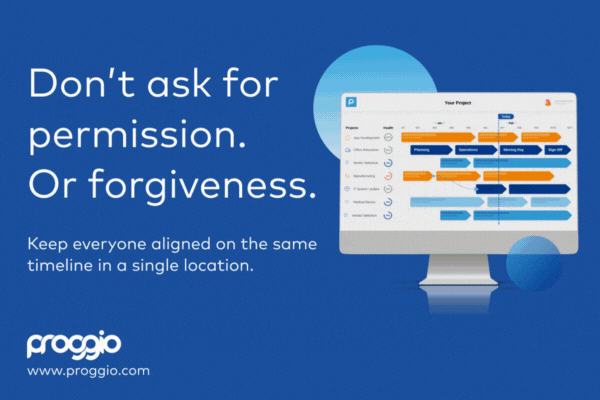15 Project Management Tips for Beginners
Project managers have to juggle multiple tasks every day, while coordinating with various teams. They are accountable for a project’s output, analyzing its goals, creating workflows, facilitating team collaboration, and ensuring that stakeholders and team members are on the same page. This article explains some of the best project management tips that can help beginners kick-start their careers as project managers.
Project Management Tips for Beginners:
● Know All the Minute Details About the Project
Before you kick-start the project, gather all information from the project stakeholders or the clients. This can include project timelines, deliverables, resource requirements, skill sets needed to accomplish the work, etc. Make a list of all the requirements, contingencies or scope creep that might occur during the project. The more detail you get, the better you can initiate and execute the project.
● Choose the Team Wisely
People onboarded for the project with the right skill sets can make a significant difference. You should have the right number of resources on the team so that it does not face a lack of skills gap. However, at the same time, your team should not be large enough to indulge in social loafing. To deal with this, first, you must decide on the skill sets required for the project and the number of people with those skills to make a strong team. Then, onboard them based on their qualifications, certification, and capability.
● Set Clear and Realistic Goals
Make sure to clearly define the goals before embarking on the project. The goals should be precise, clear, and realistic. Project goals help teams complete the project and finish the deliverables in a timely manner. Communicate the project’s goals and objectives to your team clearly, so that there is no ambiguity. Also, make sure to set some milestones throughout the project so that you can estimate the pace of your project.
● Know About Your Team
Put some effort and time into gelling with your team and increase cohesiveness among team members. This way, they would more likely go out of their way to deliver you the best possible output. Moreover, getting to know your team will help you understand each individual’s skills, strengths and weaknesses, enabling you to delegate and distribute tasks in the best possible manner.
● Empower Team Collaboration
Collaboration is crucial for the seamless management and execution of the project. To foster effective collaboration, you can conduct team-building activities, deploy collaborative tools, and leverage digital conferencing and messaging tools so that your team does not feel any challenge while working in unison. The tools must help team members connect with each other instantly, whether to share any files or collectively work on project roadblocks.
● Assess Distractions and Ways to Reduce Them
Distractions can hamper project workflow and delay delivery. Distractions may appear in any form, whether it is gossiping co-workers, a noisy work environment, the need to reply to email threads, or notification pop-ups while working. Project managers can leverage distraction-blocking apps, such as StayFocused, for their teams to block distracting notifications from the background for a stipulated time frame. Moreover, some tools like Desksight.ai can also be deployed to help project managers analyze how much time their team members are spending on which websites or applications.
● Be Prepared for Project Risks and Contingency
Changes and impediments are bound to arise during the project and can appear at any stage. Such changes can derail the project and delay delivery. This is the reason why you should prepare for potential risks and contingencies. To tackle such situations and deal with risks and contingencies, you should moot a risk management plan beforehand. The risk management plan ensures that you are armed with appropriate plans and strategies to mitigate their effects.
● Embrace Automation
Automation can really help you undertake tedious tasks so that, as a project manager, you can zero in on more significant tasks that require your expertise and attention. AI-backed technologies can help you manage everything – from allocating resources and updating task progress to scheduling the calendar as per your availability.
Advertisement
[widget id=”custom_html-68″]
● Adopting Right Project Management Methodologies
Irrespective of your industry, adopting the right project management methodology that resonates with your requirements can really help you step up your game. Project management methodology is a set of rules and guidelines to efficiently plan, manage, and execute any project. You can pick and implement the methodology that fits your project and apprise the team of its workflow, algorithm, and rules. For example, suppose your project may require frequent, ongoing changes. In that case, Scrum is the best methodology for you. You can opt for the Waterfall approach if the goal is clearly defined and there are no alterations during the project.
● Explain the Tasks to Team Members in Detail
One of the major reasons why output does not meet the client’s expectations is that project managers assign tasks to team members without providing details and information. Instead, they assign tasks assuming that team members will figure out what they need to do, how the result should be, which factors are most important and which ones they can neglect. This assumption is why teams sometimes complete tasks differently from clients’ expectations. Project managers are responsible for comprehending every single detail of the tasks assigned, such as attaching screenshots or adding notes when allocating tasks or even recording a short instruction video in case of complex tasks. Better comprehension will lead to an end product that matches the expectations.
● Manage the Team’s Time
Being a project manager, you are responsible for maintaining your team members’ time to maximum efficiency. You should be able to track how much time your team members utilize to complete respective tasks and assess their bandwidth to delegate tasks. You can leverage a project time tracking tool to track the number of employees working and the number of hours spent on specific projects or tasks.
● Determine Milestones with Stakeholders
Ideally, a project manager should continually update their stakeholders about the project’s progress and inform them of the part or the product developed thus far. Even if you are working on the approved pre-defined plan, chances are that the project may go off track or not meet the client’s expectations; therefore, stakeholders must evaluate the project’s progress regularly. The sooner you find out they are unsatisfied with the work done, the less effort your team will have to put into rectifying deliverables. You can even set milestones in between the project to keep stakeholders abreast of the progress.
● Post-project Evaluation
It is necessary to conduct a post-project assessment, where you can determine what worked well and what did not. You can also evaluate the risk management plan, such as whether or not it worked well. Or could the project be completed on time? Every project you handle can be a learning lesson that helps you gain experience about what can come in handy during critical situations and what can be improved in the near future projects.
● Understanding and Utilizing the Team’s Capacity
One of the biggest mistakes most project managers make is considering that their team will work consistently 8 hours every day. However, it rarely happens as teams need some time to relax and chit-chat, check their phones, reply to emails, etc. In fact, according to one analysis, an average full-time employee works productively only for 5 hours every day. So, if you are continuously missing project deadlines, you need to re-evaluate its schedule and introduce some buffer time. Also, be empathetic toward your team members and don’t be too stringent. This attitude will help build good team relationships and motivate team members to go the extra mile for you.
Conclusion:
These effective project management tips can help any beginner initiate and execute the project smoothly, while overcoming the roadblocks arising during the workflow. Equipped with these simple tricks, project managers can analyze complex scenarios and implement the best possible solutions.

